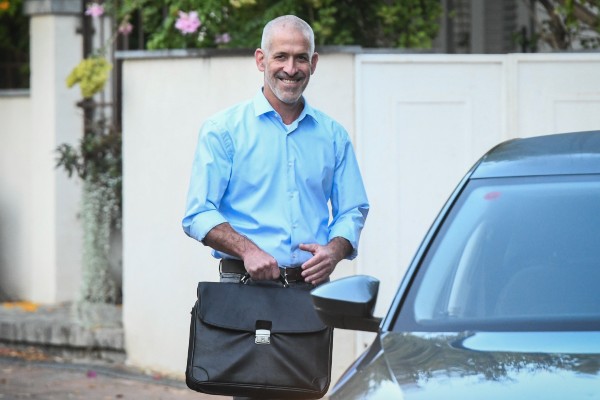Egypt is seemingly angry that Jerusalem has not released Islamic Jihad prisoners following Cairo’s successful negotiations for a ceasefire.
By Batya Jerenberg, World Israel News
Shabak head Ronen Bar met with his Egyptian counterpart Sunday in Cairo to soothe tensions arising from Israeli actions – and non-actions – following the ceasefire with Palestinian Islamic Jihad (PIJ) two weeks ago.
General Intelligence head Maj. Gen. Abbas Kamel reportedly cancelled an expected trip to Israel in anger over the situation.
Cairo had played a prominent role in attaining the calm after the IDF pounded the terror group over the weekend of August 6-8, and PIJ launched over 1,000 missiles at Israel.
Egypt is reportedly upset that Israel has gone against its expectations for ensuring that the calm is maintained following the skirmish Israel dubbed Operation Breaking Dawn. The IDF went after a long-wanted man, Al-Aqsa Martyrs Brigades commander Ibrahim Nabulsi in Nablus (Shechem), less than two days later.
Nabulsi and two other men were killed and dozens were wounded in the arrest operation that turned into a firefight when the terrorists resisted.
The incident that eventually kicked off Operation Breaking Dawn was the arrest in Jenin of the senior commander of PIJ in Judea and Samaria, Bassam al-Saadi, on August 2. For several days, the southern part of Israel was shut down over concerns that PIJ would carry out its threats to retaliate from the Gaza Strip.
The IDF, possessing concrete intelligence that the terror group had sent units towards the border to launch rockets, struck first, killing the rocket teams and assassinating the top PIJ leadership in the Strip in the weekend operation.
Cairo seemingly expected that al-Saadi would be freed following the cessation of hostilities. The PIJ statement regarding the ceasefire read in part that “Egypt will … work for the release of the prisoner Bassam al-Saadi as soon as possible.”
Instead, Israel’s military court extended his remand until Thursday, and the IDF has already announced that it would be charging him with membership in a terror group, conducting operations for said terror group, incitement, and supporting terrorism.
Another point of contention is the case of Khalil al-Awawda, an alleged PIJ terrorist being held in administrative detention who has been on a hunger strike since early March. Egypt has also “committed” itself to getting him medical attention and bringing about his release, the PIJ statement said. Israel denied that it agreed to that condition.
Awawda has since been moved to the hospital in serious condition and his detention was frozen. This allows him more freedom, as he is not being guarded while hospitalized and his family can visit him.
However, the High Court of Justice on Sunday rejected an appeal to free Awawda completely, citing classified information that shows there was “solid” evidence that justified his detention. The military court that suspended his restrictions said that once his health improved, the terrorist would be returned to prison.
For its part, the PIJ has already threatened that if the two prisoners aren’t released, it “would not hesitate” to resume the fight with Israel.





